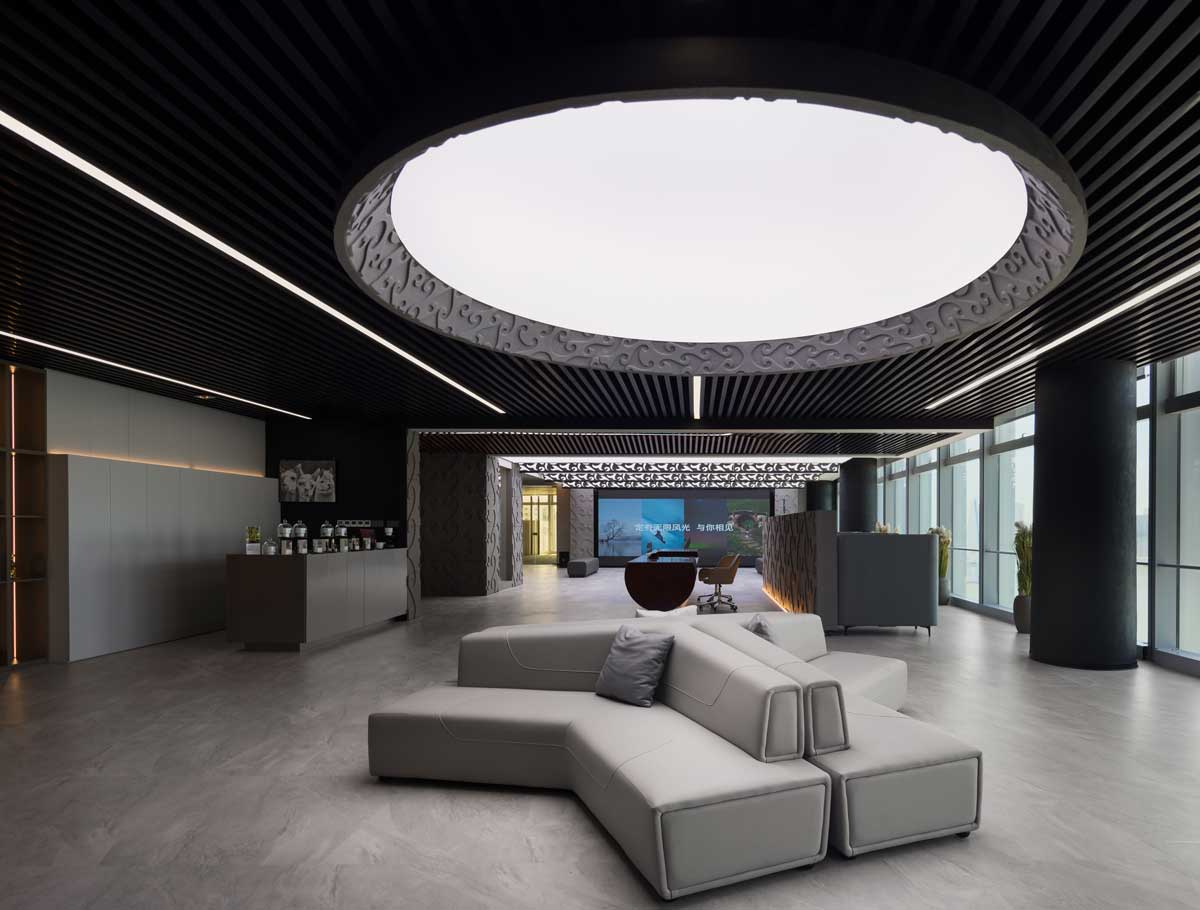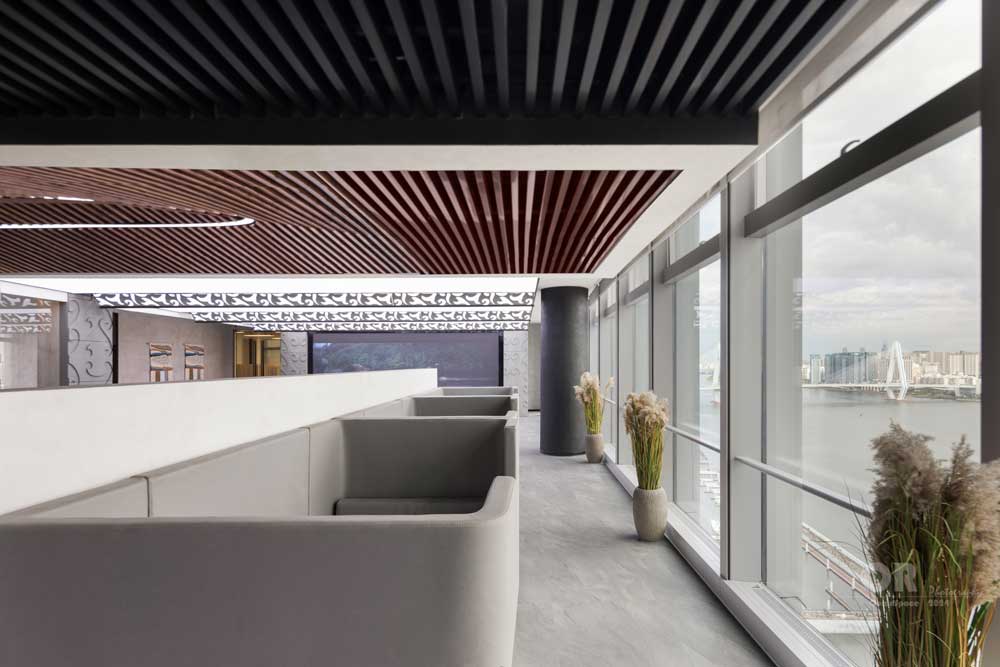Bridging Oceans Between China & New Zealand
The Oceania Center, perched along the shores of Haikou Bay in Hainan, is where New Zealand’s brightest brands meet China’s booming market. But as Chairman Kevin Sun will tell you, cracking the Chinese market isn’t just about shipping products across the sea—it’s about relationships, storytelling, and having a game plan.
With over a decade of experience working between New Zealand and China, Sun knows the challenges, the opportunities, and most importantly, the difference the right connections can make. The Oceania Center isn’t just about getting companies into China—it’s about helping them thrive once they’re there.

China is New Zealand’s largest trading partner, accounting for almost 30% of exports. Products like dairy, red meat, and mānuka honey are huge hits with China’s growing middle class, who are increasingly interested in premium, high-quality goods. But as exciting as the market sounds, it’s also complicated. “New Zealand businesses sometimes underestimate how different China’s regions are,” Sun explains. “What works in Beijing or Shanghai might not land the same way in smaller cities. You have to adjust your approach.”
The Oceania Center helps companies navigate these complexities by developing strategies tailored to specific regions. Sun, who co-founded Cross Culture Club (CCC) to help brands like Comvita grow in China, stresses the importance of staying true to a brand’s philosophy. “Comvita is all about natural health and the healing power of bees. That message doesn’t change no matter where you take it. But we do adapt how we communicate it, depending on where we’re targeting.”
According to Sun, one of the biggest mistakes brands make is chasing short-term wins. “Some companies come in thinking they’ll make quick money,” he says, “but it doesn’t work like that here. If you want to succeed, you need a long-term mindset and strong partners.” The Oceania Center focuses on building sustainable relationships from the ground up, helping companies navigate everything from product registration and regulations to choosing the right distributors—a critical step where many companies trip up. “Working with the wrong distribution partner can waste time and money,” Sun warns. “It’s important to get it right the first time.”

Officially opened in July in conjunction with a Oceania trade delegation led by former New Zealand Prime Minster, Sir John Key, The Oceania Center also brings unique distribution channels to the table, beyond the standard supermarkets and department stores. “We have relationships with golf clubhouses in China,” Sun says. “These aren’t like the golf clubs in New Zealand—they’re more like shopping malls. They sell high-end products, and being on their shelves adds brand value, not just sales.” The Center also partners with airport VIP lounges and entrepreneur clubs, offering brands visibility with premium customers. “Some of these clubs have memberships that cost over NZD 500,000,” Sun points out. “Having your product in places like that isn’t just about sales—it’s a signal to customers that your brand belongs in the premium space.”
Personal relationships, Sun says, are the backbone of doing business in China. “I’d say 70 to 80% of success here comes down to personal connections,” he admits. “But relationships don’t appear overnight—they start with knocking on the right doors.” Building trust with the right decision-makers, he explains, can fast-track everything. “Once you’ve got the trust, things move quickly. But you still need a strong product to back it up.”
One of the most important lessons Sun teaches brands working with the Oceania Center is to stay true to their origins. “A lot of brands get caught up trying to cater to the Chinese market and forget where they came from,” he says. “That’s a mistake. The New Zealand story matters. Chinese consumers value authenticity—they want to know the story behind the product.” The Center works with businesses to highlight their New Zealand roots, ensuring that customers see them as more than just imported goods. “It’s not just about registering a company in New Zealand and selling in China—it’s about sharing what makes the product and the brand genuinely Kiwi.”

Access to the right financial tools is also a big part of the Oceania Center’s offering. Two frameworks—QDLP (Qualified Domestic Limited Partnership) and QFLP (Qualified Foreign Limited Partnership)—make cross-border investments smoother. QDLP helps Chinese investors raise capital to fund overseas projects, while QFLP makes it easier for international companies to invest in China’s markets. “These programmes remove a lot of the typical headaches,” Sun says. “We help companies tap into the capital they need so they can focus on growing their business.”
The Oceania Center also manages an investment fund focused on Oceania, backing businesses in sectors like renewable energy, agriculture, and premium consumer goods. “There’s a lot of opportunity for New Zealand companies, but they need the right financial support,” Sun explains. “Our fund helps connect Kiwi businesses with Chinese investors who want to be part of the long-term story.”
Sustainability is also at the core of what the Oceania Center does. The team supports projects ranging from agrivoltaic solar farms to sustainable meat processing. One recent initiative involves acquiring a red meat processing plant in New Zealand, aligning with the growing global focus on sustainable food production. “Thinking long-term isn’t just good for the planet—it’s good for business,” Sun says.

Beyond business, the Oceania Center also understands the importance of culture and creativity. Through partnerships with the Yundong Pavilion and Sky Mountain Art Station, the Center creates spaces where business leaders, artists, and innovators can connect. “Business and culture go hand in hand,” Sun says. “These kinds of collaborations inspire new ideas and help build stronger relationships.”
Oceania Center is also working with the education sector at a number of levels to share resources and insights between Oceania and China. Not only for Chinese students to study abroad but also for New Zealand educational providers to scale into China.
For companies ready to explore China, the Oceania Center offers more than just a way in—it’s a way to grow sustainably and build lasting partnerships. “The market here is huge,” Sun says, “but it can also be overwhelming. That’s why having the right plan—and the right partners—matters.” He also believes in moving quickly. “One of my mentors told me, ‘When you can run, don’t walk.’ Time is the most valuable thing we have, and that mindset has always stuck with me.”
The Oceania Center isn’t just a bridge between markets—it’s where ideas become action, and ambition turns into results. With tailored strategies, access to capital, unique sales channels, and a focus on long-term relationships, the Center helps businesses find their place in China’s booming market without losing sight of their origins. For companies ready to embrace new horizons, the Oceania Center offers a practical way forward—one built on authenticity, connection, and sustainable growth.

